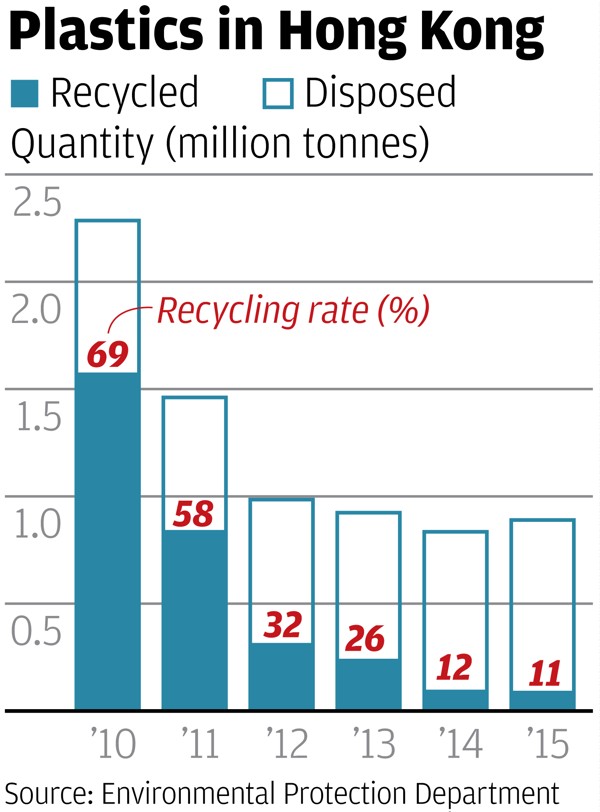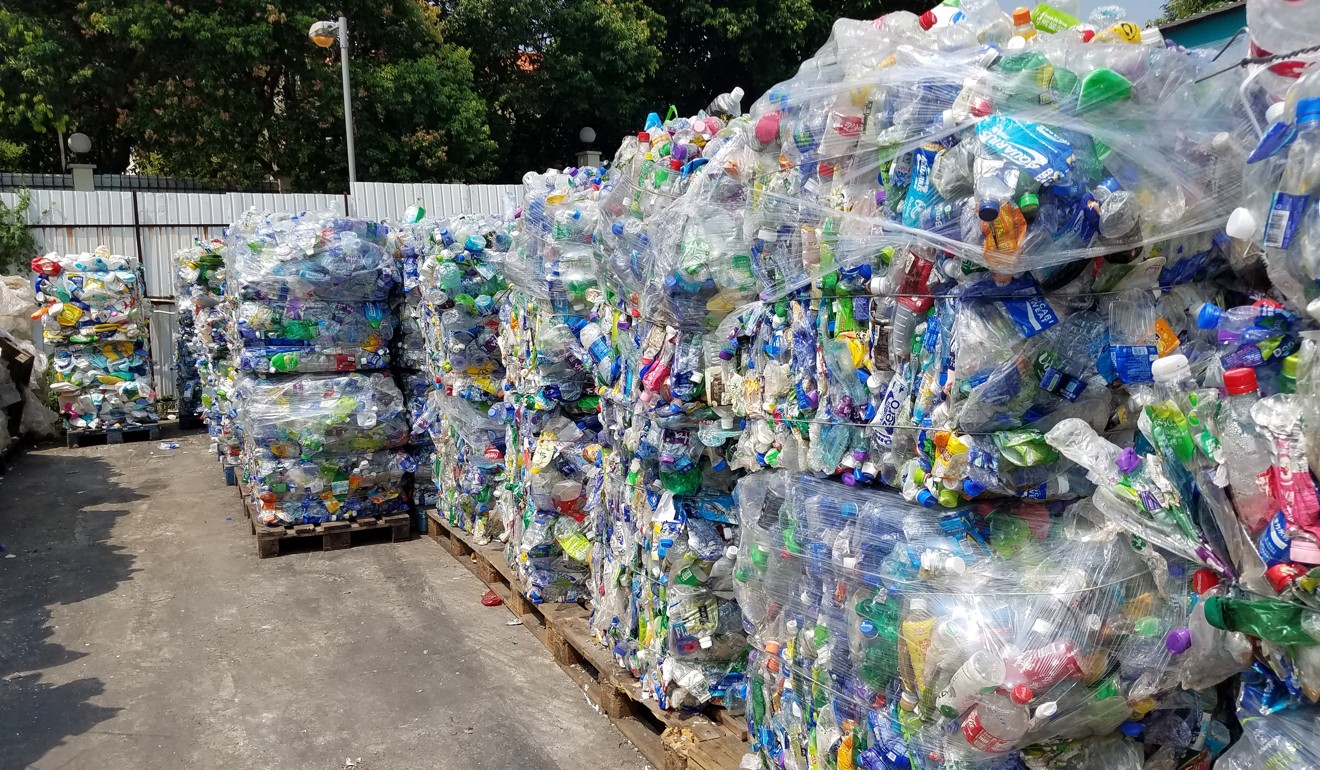
Private sector has failed Hong Kong on plastic bottle recycling, green group study finds
Government accounts for 96 per cent of PET bottle recycling, while most private businesses won’t accept them, data shows
The private sector plays only a negligible role in the recycling of plastic bottles in Hong Kong while government-backed bodies account for up to 96 per cent, a study by a local green group has found.
The Green Earth looked at where the city’s polyethylene terephthalate (PET) bottles came from in 2015, and found that only 7.6 per cent of them were recycled, based on government figures.
PET bottles are used to hold liquids such as water and soft drinks. The year 2015 was the latest for which official figures were available.
Hong Kong government bodies recycled between 6 per cent and 7.3 per cent of all the plastic bottles in the city, while businesses accounted for only 0.3 to 1.6 per cent, according to the study.
The Recycling Fund and the Community Recycling Network were the biggest reusers, processing 2.7 and 1.5 million tonnes respectively.
The Green Earth compiled the data based on figures from the government’s Environmental Protection Department (EPD), the Agriculture, Fisheries and Conservation Department, and the Leisure and Cultural Services Department.

The study also found that most private recycling companies in Hong Kong would not recycle plastic bottles, with 84 per cent of the 74 firms surveyed declining to accept any, and the rest requiring customers to pay for shipping.
“The free market is facing a breakdown when it comes to recycling useful plastic resources, and it’s absolutely unsustainable if we continue in this direction,” Edwin Lau Che-feng, founder and executive director of The Green Earth, said.
Welcome step to cut use of plastic bottles
A plummet in crude oil prices in recent years has squeezed profit margins on recycling plastics, which are made from petroleum. The price of West Texas Intermediate crude, used as a benchmark for oil pricing, has declined 33 per cent over the past five years.
Coupled with the effect of mainland China’s crackdown on imports of waste material, the recycling rate for plastics as a whole in Hong Kong nosedived to reach just 11 per cent in 2015, down from 69 per cent in 2010, according to the EPD.

In Germany, as much as 94 per cent of PET bottles were recycled in 2015, according to German advocacy association Forum PET. The recycling rate in the United States was 28 per cent last year, a report by the US National Association for PET Container Resources showed.
With China set to ban 24 types of imported waste materials by the end of this year, Hong Kong needed to move to build a self-sustaining system for plastics recycling, Lau said.
Hong Kong government vending machines to ditch small water bottles in battle against plastic waste
“The government should intervene,” Lau said.
He believed officials should push for legislation on a producer responsibility scheme, as is in place in Europe, which holds manufacturers accountable for the entire lifespan of plastic products, including collection, recycling, and disposal.
He also called on the government to build water fountains in public spaces such as MTR stations to foster a culture of “bringing your own bottle”.
PET bottles make up the majority of plastic bottles as their lifespan is much shorter than that for other types such as those made from high-density polyethylene (HDPE), which is used for more long-lasting items such as shampoo and detergent containers, Lau said.
The EPD declined to comment on the results as it does not have details of the study, such as the research method.
“The department has taken a series of measures to boost local plastic recycling and raise the quantity and quality of recycled plastics from the source, lifting the recyclability and economic value of plastic waste,” a spokesperson for the EPD said.

